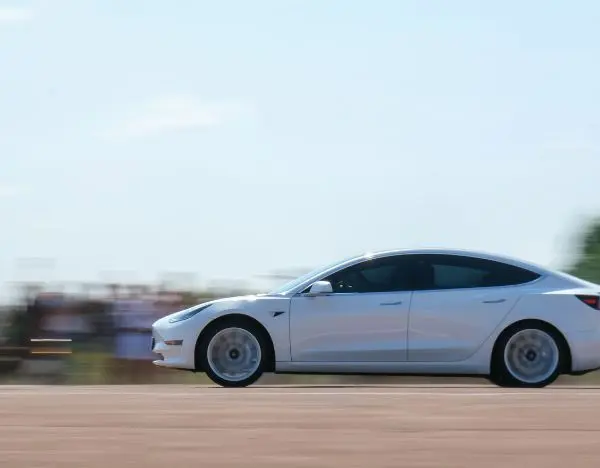As electric vehicles (EVs) become increasingly prevalent on our roads, questions about their safety naturally arise. One common concern is whether electric cars are more dangerous in a crash compared to their conventional counterparts. At Kelner & Kelner, we believe it's crucial to examine this issue objectively and provide our clients with accurate information. Let's delve into the facts and explore the safety aspects of electric vehicles in collision scenarios.
Are Electric Cars More Dangerous in a Crash?
While electric cars are not necessarily more dangerous overall in crashes, they do present unique safety considerations. Their increased weight can lead to greater impact forces in collisions, potentially causing more severe damage. The large batteries pose risks of thermal runaway and fire, which can be challenging to extinguish. Additionally, the rapid acceleration of electric vehicles may contribute to single-vehicle accidents, especially with inexperienced drivers.
However, electric cars also offer safety advantages, such as a lower center of gravity and larger crumple zones. Manufacturers are actively addressing these specific risks through improved designs and safety systems. Ultimately, the safety of an electric car in a crash depends on various factors, including vehicle design, crash circumstances, and driver behavior, rather than solely on its power source.

Different Types of Dangers in Electric Cars
While electric cars are not necessarily more dangerous overall in crash situations, they do present some unique risks that differ from those of conventional vehicles. Understanding these specific dangers is important to better assess the safety profile of electric vehicles.
Increased Weight Equals Greater Danger
Electric vehicles often weigh more than their gasoline-powered counterparts due to the heavy battery packs they carry. This increased weight can have significant implications in crash scenarios:
- Impact Force: In a collision, a heavier vehicle will transfer more energy to the other vehicle or object involved. This could potentially result in more severe damage or injuries, especially when an electric car collides with a lighter conventional vehicle.
- Longer Stopping Distances: Electric vehicles' additional weight can lead to longer stopping distances, which may increase the risk of rear-end collisions if drivers don't adjust their driving habits accordingly.
- Stress on Components: The extra weight stresses various vehicle components, including brakes and tires. This could lead to faster wear and tear, affecting the vehicle's overall safety if not properly maintained.
Onboard Battery Risks in EV Crashes
The large, high-voltage batteries in electric vehicles introduce some unique risks in crash situations:
- Thermal Runaway: In severe impacts, there's a risk of damage to the battery cells, which could lead to a phenomenon called thermal runaway. This chain reaction can cause the battery to overheat and potentially catch fire.
- Electric Shock Hazard: Damage to the high-voltage system in a crash could expose occupants or first responders to the risk of electric shock. However, EVs are designed with multiple safety systems to minimize this risk.
- Fire Suppression Challenges: While vehicle fires are not unique to EVs, battery fires in electric cars can be more challenging to extinguish and may reignite hours or even days after the initial incident. This poses new challenges for fire departments and rescue services.
Silent Operation Increases Pedestrian Accident Risk
One unique characteristic of electric vehicles is their nearly silent operation, especially at low speeds:
- Reduced Auditory Cues: Pedestrians, cyclists, and other road users often rely on engine noise to alert them to approaching vehicles. The quiet nature of EVs can catch people off guard, potentially leading to more accidents.
- Increased Risk in Urban Areas: This issue is particularly pronounced in urban environments with heavy foot traffic, where pedestrians may step into the path of an EV they didn't hear coming.
- Regulatory Response: Recognizing this risk, many regions now require EVs to be equipped with artificial sound generators at low speeds to alert pedestrians and cyclists.
Autopilot and Advanced Driver Assistance Systems (ADAS) Concerns
Many electric vehicles, particularly those from certain manufacturers, come equipped with advanced autopilot or ADAS features. While these systems can enhance safety when used correctly, they also introduce new risks:
- Over-reliance on Technology: Some drivers may place too much trust in autopilot systems, becoming inattentive or even attempting to disengage from driving entirely.
- System Limitations: Autopilot and ADAS have limitations and may not respond correctly in all situations, such as unusual road configurations or severe weather conditions.
- Misunderstanding of Capabilities: Drivers may misunderstand the capabilities of their vehicle's systems, attempting to use them in situations they're not designed for.
- Software Glitches: As with any complex technology, there's a risk of software glitches or malfunctions that could potentially lead to accidents.
- Transition Time: When autopilot systems require human intervention, there can be a critical delay as the driver re-engages with the task of driving.
Faster Acceleration Results in Single Vehicle Wrecks
Many electric vehicles are capable of extremely rapid acceleration, which can lead to specific safety concerns:
- Loss of Control: Electric motors' instant torque delivery can cause inexperienced drivers to lose control, especially in adverse weather conditions or during cornering.
- Increased Risk of Single-Vehicle Accidents: The rapid acceleration capabilities might encourage some drivers to engage in riskier behavior, potentially leading to more single-vehicle accidents such as running off the road or colliding with stationary objects.
- Pedestrian Safety: The quick and silent acceleration of EVs can catch pedestrians off guard, potentially increasing the risk of accidents in urban environments.
It's crucial to note that while these dangers exist, they don't necessarily make electric cars more dangerous overall than conventional vehicles. Manufacturers are continually working to address these issues through improved designs, safety systems, and driver education programs. Additionally, as drivers become more accustomed to the unique characteristics of electric vehicles, some of these risks may be mitigated.
Common Injuries from an Electric Vehicle Accident
While electric vehicle accidents can result in injuries similar to those seen in conventional car crashes, there are some specific considerations due to the unique characteristics of EVs. Here are some common injuries that may occur in electric vehicle accidents:
- Whiplash: The rapid acceleration and deceleration capabilities of electric cars can increase the risk of whiplash, especially in rear-end collisions.
- Blunt Force Trauma: The heavier weight of EVs can lead to more severe impacts, potentially causing blunt force trauma to occupants and other road users.
- Burn Injuries: In rare cases where battery damage leads to fires, occupants may suffer from burns. These can be particularly severe due to the intense heat generated by lithium-ion battery fires.
- Electrical Injuries: While modern EVs have multiple safety systems, there's a potential risk of electrical shock injuries in severe crashes that compromise the high-voltage system.
- Crushing Injuries: The weight of EVs can lead to more severe crushing injuries, particularly in rollover accidents or collisions with smaller vehicles or pedestrians.
- Internal Injuries: The force of impact in EV collisions, particularly due to their weight, can cause internal injuries such as organ damage or internal bleeding.
- Fractures and Orthopedic Injuries: Like in any vehicle accident, occupants may suffer from broken bones or other orthopedic injuries, potentially exacerbated by the weight of the vehicle.
- Traumatic Brain Injuries: While not unique to EVs, the potential for more forceful impacts could increase the risk of traumatic brain injuries in severe collisions.
- Psychological Trauma: As with any accident, victims may experience psychological effects such as post-traumatic stress disorder (PTSD), anxiety, or depression.
It's important to note that while these injuries can occur in electric vehicle accidents, many modern EVs are equipped with advanced safety features designed to minimize injury risk. The severity and type of injuries in any accident depend on various factors, including the speed of impact, the type of collision, and whether safety features like seatbelts and airbags were properly used.
How an Electric Vehicle Accident Lawyer Can Help When You've Been Injured
At Kelner & Kelner, we understand that being involved in an electric vehicle accident can be a complex and overwhelming experience. The unique characteristics of electric vehicles can introduce additional complications to your case. Here's how our team can assist you if you've been injured in an electric vehicle accident:
- In-Depth Knowledge: Our personal injury attorneys stay up-to-date with the latest developments in electric vehicle technology and safety standards. This comprehensive understanding allows us to better grasp the unique factors involved in your accident and build a stronger case on your behalf.
- Thorough Investigation: We conduct a comprehensive investigation of your accident, taking into account the specific features of electric vehicles that may have played a role. This includes examining battery safety, vehicle weight considerations, and the performance of advanced driver assistance systems.
- Professional Consultations: We work with a network of professionals in electric vehicle technology, accident reconstruction, and biomechanics to provide informed analysis of your case. Their insights can be crucial in establishing liability and demonstrating the full extent of your injuries.
- Navigating Insurance Complexities: Electric vehicle accidents may involve unique insurance considerations. Our car accident lawyers are experienced in dealing with insurance companies and can help you navigate these complexities to ensure you receive fair compensation.
- Identifying All Liable Parties: In electric vehicle accidents, liability may extend beyond just the other driver. We thoroughly examine potential manufacturing defects, software glitches, or charging station malfunctions that could have contributed to your accident.
- Calculating Full Damages: We ensure that your accident's current and future damages are properly calculated. This includes medical expenses, lost wages, pain and suffering, and any long-term care needs resulting from your injuries.
- Staying Current with Evolving Laws: As electric vehicles become more prevalent, laws and regulations surrounding them are evolving. Our team stays abreast of these changes to ensure your case is handled in accordance with the most current legal standards.
- Negotiating Fair Settlements: We leverage our experience and knowledge to negotiate effectively with insurance companies and other parties, striving to secure a fair settlement that fully compensates you for your injuries and losses.
- Litigation Support: We are fully prepared to take your case to court if a fair settlement cannot be reached. Our experienced litigators will advocate vigorously on your behalf throughout the trial process.
- Personalized Support: We understand that each case is unique, and we provide personalized attention to address your specific needs and concerns throughout the legal process.
If you've been injured in an electric vehicle accident, don't navigate this complex terrain alone. At Kelner & Kelner, we have the knowledge, experience, and resources to handle the unique aspects of electric vehicle accident cases. Contact us today for a free consultation to discuss your case and learn how we can help you secure the compensation you deserve.
Involved in an Electric Vehicle Accident? We're Here to Help
If you or a loved one has been injured in an accident involving an electric vehicle, don't face the complexities alone. At Kelner & Kelner, we have the knowledge and experience to navigate the unique challenges of EV-related accidents. Contact us today for a free consultation and let us help you secure the compensation you deserve.


